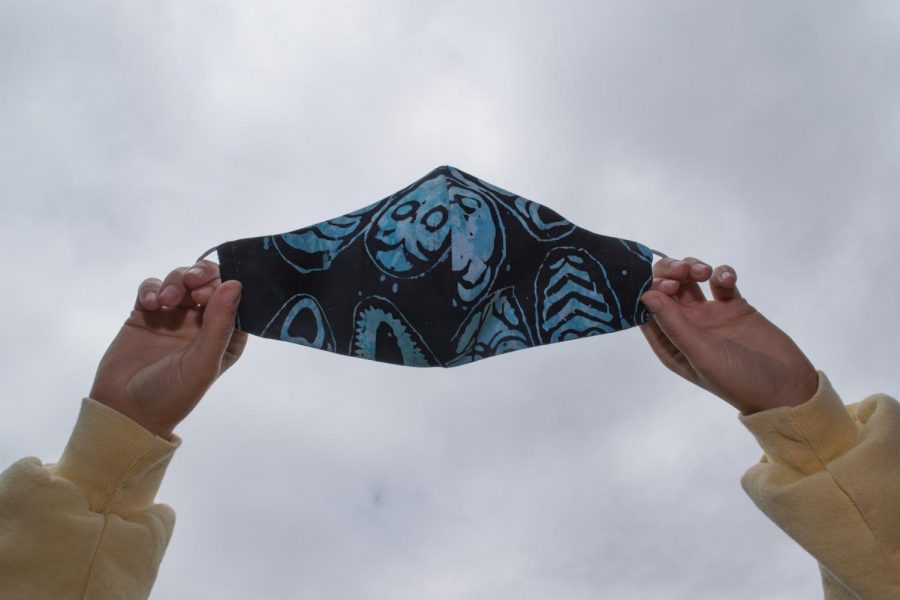Redhawks Ruminate on Restrictions
Washington State Governor Jay Inslee and King County recently announced that the state and county’s indoor mask mandates will end March 12. These COVID-19 policy changes caused members of the Seattle University community to question how this will impact the university’s mask policy.
Seattle U has yet to release an official statement as the school’s administrators are still considering numerous factors and concerns. Provost Shane Martin shared some insights on the decision-making process.
“We said from the beginning of COVID-19 that we would make decisions informed by science, data, public health and government guidance,” Martin said. “I believe our current mask policy will be in effect through winter quarter and could be revised in spring depending on the guidance in place at that time.”
While Seattle U has acted with care when approaching COVID-19 precautions and protocol thus far, the university is now dealing with students and faculty who have raised concerns over the possibility of the mask mandate being lifted altogether.
Milo Chaffe, a first-year biology student, is an immunocompromised individual who feels that her experience living on campus has been made safer because of masks.
“Masks are the difference between me feeling like I can’t go to school in person, and having a sense of security. There’s no way around that. There’s people who talk about how those with preexisting conditions should just stay home, but they have to realize that not all of us can do that,” Chaffe said. “It feels like they see me as just my illness. It’s not fair for it to be a decision between my life and my livelihood.”
As a Biology student, Chaffe has to attend in-person labs for her classes. She fears that lifting the mask mandate for indoor activities and classes would force her to risk her health by attending in-person classes. Chaffe raised other concerns about how masks and social distancing affect her interpersonal relationships.
“I understand that it’s hard for students and can feel like it’s hindering things or limiting the college experience. Keeping the mandate in place would be what allows me to keep going to in-person classes,”Chaffe said. “It would be the difference between me shutting myself in my room all the time and being able to actually live somewhat normally as a college student.”
Faculty and staff at Seattle U also expressed how the mask mandate impacts them, both in the classroom and personally. Michael Ng, a history professor, feels that the safety provided by the masks outweighs any difficulties they may pose toward classroom communication.
“This is a difficult conversation even for those of us who are vaccinated, masked and doing all the right things. Personally, I’m in favor of maintaining the mask mandate until at least the end of winter quarter, if not into the spring. As much as I want to be maskless, I have a child who’s not yet eligible for the vaccine, and I have students’ health to think about, too,” Ng said.
On the other hand, there are some members of the community who believe lifting the mask mandate soon would be in the best interest of Seattle U. Two of the primary complaints surrounding masks are that they hinder communication in the classroom and an athlete’s performance and interactions.
“I think masks in the classroom are good because it keeps away germs, but I think masking on campus should be a personal choice. I choose to wear my mask because I understand there are people who are still being affected by COVID-19. I think if a person chooses to be responsible, then it’s their decision,” Talia Friedman, a first-year forensic psychology student, said.
Many members of the Seattle U community still fear that lifting the mask mandate would put people who follow other COVID-19 precautions at risk from those who may not be taking the same precautions.
Lucy Sartain, a first-year psychology major and member of the women’s rowing team at Seattle U, echoed these concerns.
“Masks are the easiest thing to do to keep us and the people around us safe. They’re good for both personal and public health,” Sartain said.
Part of the consideration when discussing changing the mask mandate is not only how it impacts healthy, vaccinated individuals, but how it may affect the university as a whole, including at-risk individuals. With all these factors in mind and spring quarter approaching, Seattle U is still examining its options and has yet to make an official decision.











